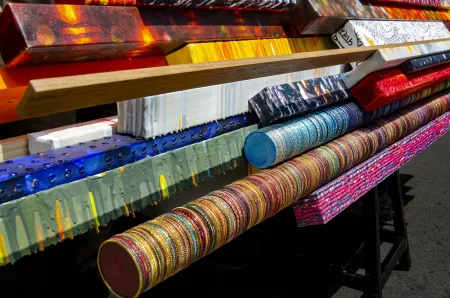- India
- International
The Future Classroom: The role of teachers needs a relook in digital era
What is true of these non-traditional learners is also increasingly true for the classroom.
 More and more students with digital connectivity and a fluency with born-digital objects are no longer relying on their teachers, their textbooks or prescribed curricula designed by some impersonal committee.
More and more students with digital connectivity and a fluency with born-digital objects are no longer relying on their teachers, their textbooks or prescribed curricula designed by some impersonal committee.
By Nishant Shah
One of the coolest jobs about my distributed research is that I get to meet all the people behind the avatars, on the different nodes across global networks. Meeting real people behind virtual presences is a lesson in diversity. People’s location, gender, sexuality, class, political beliefs, community affiliations, and personal attitudes make the internet a fantastic subject to study. Even as the social web gets run by a few monopolies, and everybody uses the same platforms across the world, the way they use it, and what they do with it is not only richly different, but also radically subversive.
However, despite all the diversity online, sometimes you encounter similar things. Last week, I had separate conversations with three people, who are high on the geekiness spectrum, across Scotland, Netherlands and India. One of them is a true-blood digital native, who works on collecting stories of growing up with abuse to build an online community of discussions and conversations of support. The other is an aspiring teacher, who is invested in building online learning resources for non-traditional learners, reaching out to life-long learners and first-time adult learners. The third person is immersed in poetry, and writes fan-fiction poetry and moderates online communities of young people producing new and remixed cultural products. Each one of them is as different as they can be from each other.
And yet, in talking to them about what started their online quests, there was one thing that all of them said. They started by something that fascinated them, something that took their interest, and then, they “learned it on the internet”. It is a refrain that is increasingly familiar, as more and more people turn to the internet to find something that they are interested in. They do not go to universities, or classrooms or coaching arenas. They do not rely on experts or old vanguards of authoritative knowledge. Instead, they find others like themselves. They discover hashtags that help them curate the vast wealth of user generated knowledge on Twitter. They join groups and communities on Facebook and form friendships based on common interests. They explore boards on Pinterest and find collections of others who share their tastes. They edit and browse the different Wikis — Wikipedia, Wikihow, even Wikitravel — to find new connections and adventures in their quest for knowledge.
What is true of these non-traditional learners is also increasingly true for the classroom. More and more students with digital connectivity and a fluency with born-digital objects are no longer relying on their teachers, their textbooks or prescribed curricula designed by some impersonal committee. Instead, they dwell on the rich information sets on the Web, not only consuming but also producing a significant amount of information that adds to the ever-burgeoning data online. The new student of our future classrooms is then going to demand something else from the teacher — the spark of curiosity, the rubric of methods, skills of critical reflection, processes of information curation, and intellectual instincts that are tailored for ethical choices in everyday life.

As the teacher and the textbook get replaced by these digital resources of learning, there are many attempts that try and expand the information scope and repertoire of the teacher, firmly believing that installing smartboards and digitally connecting the classrooms is the solution. However, it is obvious to anybody with their ear on the ground that we will need to re-evaluate the role of a teacher, and construct our education systems, not to be pale imitations of older classrooms, as we see in the rise of the Massively Open Online Courseware. We don’t need apps and hacks for learning, or gamified platforms, though they do help. What we need is an introspection into the role of the teacher, not competing with the internet, but helping students learn, think, reflect, and implement their knowledge, as they collaborate and contribute, while “learning on the internet”.
Nishant Shah is director, research, The Centre for Internet and Society
More Lifestyle
Apr 19: Latest News
- 01
- 02
- 03
- 04
- 05


































